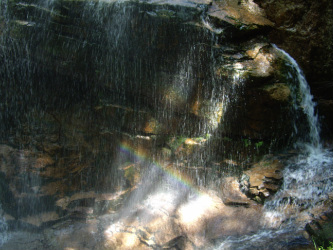 4-21-13 Do You Want to Be Healed? John 5:1-9 NRSV After this there was a festival of the Jews, and Jesus went up to Jerusalem. Now in Jerusalem by the Sheep Gate there is a pool, called in Hebrew Beth-zatha, which has five porticoes [covered porches]. In these lay many invalids—blind, lame, and paralyzed. One man was there who had been ill for thirty-eight years. When Jesus saw him lying there and knew that he had been there a long time, he said to him, “Do you want to be made well?” 7 The sick man answered him, “Sir, I have no one to put me into the pool when the water is stirred up; and while I am making my way, someone else steps down ahead of me.” Jesus said to him, “Stand up, take your mat and walk.” At once the man was made well, and he took up his mat and began to walk. Now that day was a Sabbath. On our Sabbath Day we came full of feelings, some heavy, some sad, still confused, angry, proud, relieved, all with a sense of loss. We come as we are and we hear Jesus asking, “Do you want to be healed?” Can you open yourself in the midst of pain and confusion to what I will tell you to do? Take up your mat and walk. We hear Jesus say these words, knowing there are Marathoners recovering in Boston hospitals who face long recovery processes learning how to walk again. That there are days when, for some of them, walking again will seem impossible. Some of us have had those days, haven’t we? When to set two feet on the ground and walk is more than we can bear, when a way forward seems impossible. Love is the only answer to the impossible and we experience that love in Christ. That is the power of the resurrection. Its not so much the physical audacity of Christ’s rising, but the in-breaking understanding that God, enfleshed and feeling human emotions, that God, thinking human thoughts and making human choices, would choose to return to the people and place who had caused him such pain. On Monday we were proud of those who ran toward bomb blasts in order to reach their fellow human beings who needed help. We were impressed by the calm and orderly response in emergency rooms across the city. We were inspired by words of hope and resolve from political leaders throughout the week. And we were awed by the meticulous work of law enforcement bringing this excruciating incident to an end. Now what? How do we return to “normal?” What matters in what we chose to do next? In the middle of the week, I received a request to go back to the Maine legislature this week and witness to pending legislation that would provide a summer weekday meal for children in Maine who live in or on the edge of poverty. There are a little more than 61,000 children at risk of not eating today n Maine. 16 % of children eligible to receive a free meal in the summer currently receive those meals.[1] I set the message aside. It’s still in my inbox. And I hear Jesus asking, do you want to be healed? Take up your mat…... Hunger and poverty contribute to many of our state's deepest and most intractable problems. Hungry children can't focus in school, and just being low-income is itself a risk factor for a variety of medical problems, such as diabetes, asthma, cancer and depression. All are aggravated by poor nutrition.[2] The Good Shepherd Food Bank calculates our Childhood food insecurity rate at 23 percent, or nearly 1 in every 4 children, the highest in New England. And yet, if wealth were measured by what has greatest intrinsic worth, Maine is one of the wealthiest societies in the world, Do you want to be healed? Take up your mat and walk… In the uneasy reworking of world economies, we hear a lot of talk about the Gold standard. I wonder why we don’t base our measure of wealth on an asset that we can’t live with out. What about a water standard? All the water to which we will ever have access was created in planet earth’s first moments. No more will ever be made. And: Only 2.5 percent of the planet's water supply is fresh, Steven Solomon writes in Water: The Epic Struggle for Wealth, Power and Civilization, much of which is stored in glaciers. World water use in the past century grew twice as fast as world population…. water is surpassing oil as the world's scarcest critical resource. … water's cost doesn't reflect its true economic value. While a society's transition from oil may be painful, water is irreplaceable. Yet water costs far less per gallon — and even less than that for some. "We've now reached the limit where that trajectory can no longer continue," … "Suddenly we're going to have to find a way to use the existing water resources in a far, far more productive manner than we ever did before, because there's simply not enough." , there's an increasing feeling in the world that everyone has a basic right to a minimum 13 gallons of water a day for basic human health. He doesn't necessarily have an issue with that.” I think there's plenty of water in the world, even in the poorest and most water-famished country, for that 13 gallons to be given for free to individuals — and let them pay beyond that," [Steven Solomon] says. China, Egypt and Pakistan are just a few countries facing critical water issues in the 21st century.[3] [Solomon] writes, "Consider what will happen in water-distressed, nuclear-armed, terrorist-besieged, overpopulated, heavily irrigation dependent and already politically unstable Pakistan when its single water lifeline, the Indus river, loses a third of its flow from the disappearance from its glacial water source.".[4] A National Intelligence Estimate on water security, released at a State Department event commemorating World Water Day says that floods, scarce and poor quality water, combined with poverty, social tension, poor leadership and weak governments "will likely increase the risk of instability and state failure, exacerbate regional tensions, and distract countries from working with the United States on important policy objectives," Then Secretary of State Hilary Clinton unveiled a new U.S. Water Partnership that aims to share American water management expertise with the rest of the world. The report predicts that upstream nations - more water powerful than their downstream neighbors due to geography - will limit access to water for political reasons and that countries will regulate internal supplies to suppress separatist movements and dissident populations. At the same time, terrorists and rogue states may target or threaten to target water-related infrastructure like dams and reservoirs more frequently. Even if attacks do not occur or are only partially successful, the report said "the fear of massive floods or loss of water resources would alarm the public and cause governments to take costly measures to protect the water infrastructure."[5] Do you want to be made well? [There is] good water news: The United States has made significant progress in curbing its water use, thanks to market forces and legislation such as the Clean Water Act. "Our water use between 1900 and 1975 actually tripled relative to population growth," he says.[But] "Since 1975 to the present day, it has flat-lined. And we still had a population increase of about 30 percent and our GDP continued to grow. So it's an amazing increase in water productivity.[6] There are hundreds of creative Water projects coming from students and research professors in the Boston area. This week I’ve heard a repeating refrain of mothers, fathers, friends of the dead and injured and the perpetrators, thinking aloud about what happened Monday in Boston. “This doesn’t make sense.” But Boston didn’t wait for “intellectual understanding before people began to act.” Each of us had our own response, and each our own personal sense of connection this week. Some have run, waved, or volunteered at the Boston Marathon. Many have studied, visited as a tourist, met or married in Boston. Some of us have offspring living there. We all have impressions of this rugged, resilient collaboration of culture, sports, history, education, immigration and attitude. My own response disturbed me. It felt so damn familiar. I knew what to expect, the cycle of events and emotions, because we’ve been here before. Oklahoma City, Atlanta’s Olympic Village, Newtown, 9-ll The litany of sorrow and anger grows each time, as does our capacity to take it in, and to reach out. So I recognize my response without being willing to accept it as normal. “This doesn’t make sense.” But Jesus calls me out of my analysis paralysis, “Do you want to be made well?” We can make sense out of non-sense by how we respond. .We can be God re-oriented after being gob-smacked. Do you want to be made well in your heart and soul, the heart that sets the drumbeat of your life? Over the past few generations we see young men especially struggling to figure out how to be a man. The way two young men in Boston chose on Monday doesn’t make sense.” But the way we teach our young men to respond can. The way we say medics and runners and leaders and police and bystanders, both men and women, does. There are constructive ways to deal with our vulnerability. “I imagine one of the reasons people cling to their hates so stubbornly is because they sense, once the hate is gone, they will be forced to deal with pain. –James Baldwin The country, no, the world has been inspired by Boston’s feisty backbone, unflinching response In Hebrew, “Mayim” means water. It is from the same root as “Mah,” translated as “what”. “When a person immerses in the water of baptism, like the healing pool by which that man crippled propped himself for 38 years, he submerges his ego and asks, “What am I?” When he, or she, emerges, before anything else, they are God’s good creation. They step into God’s realm where: They will hunger no more, and thirst no more; the sun will not strike them, nor any scorching heat; for the Lamb at the center of the throne will be their shepherd, and he will guide them to springs of the water of life, and God will wipe away every tear from their eyes." Revelation 7:15-17 [1] The public hearing for LD 1353, An Act to Further Reduce Student Hunger helps to strengthen the Summer Food Service Program by requiring a school that has 50% or more of their students eligible for free and reduced lunch and runs a summer educational or recreational program to operate a SFSP site. -Michelle Lamm, Maine Hunger Initiative Program Manager, Preble Street, email to author [2] Paradoxically, low-income people are three times as likely to be obese as those at the top of the income scale, according to a 2010 Gallup poll. That also can be related to food insecurity. [3] A description of China’s water situation can be found at http://blogs.ei.columbia.edu/2011/05/05/how-china-is-dealing-with-its-water-crisis/ [4] ." NPR interview, January 2010. [5] http://www.nydailynews.com/news/world/water-war-coming-decades-u-s-intelligence-report-article-1.1049046#ixzz2R3rDdO9N [6] ibid NPR
0 Comments
|
Karen L MunsonUnited Methodist Pastor & Liturgical Artist Archives
September 2015
Categories
All
|

 RSS Feed
RSS Feed